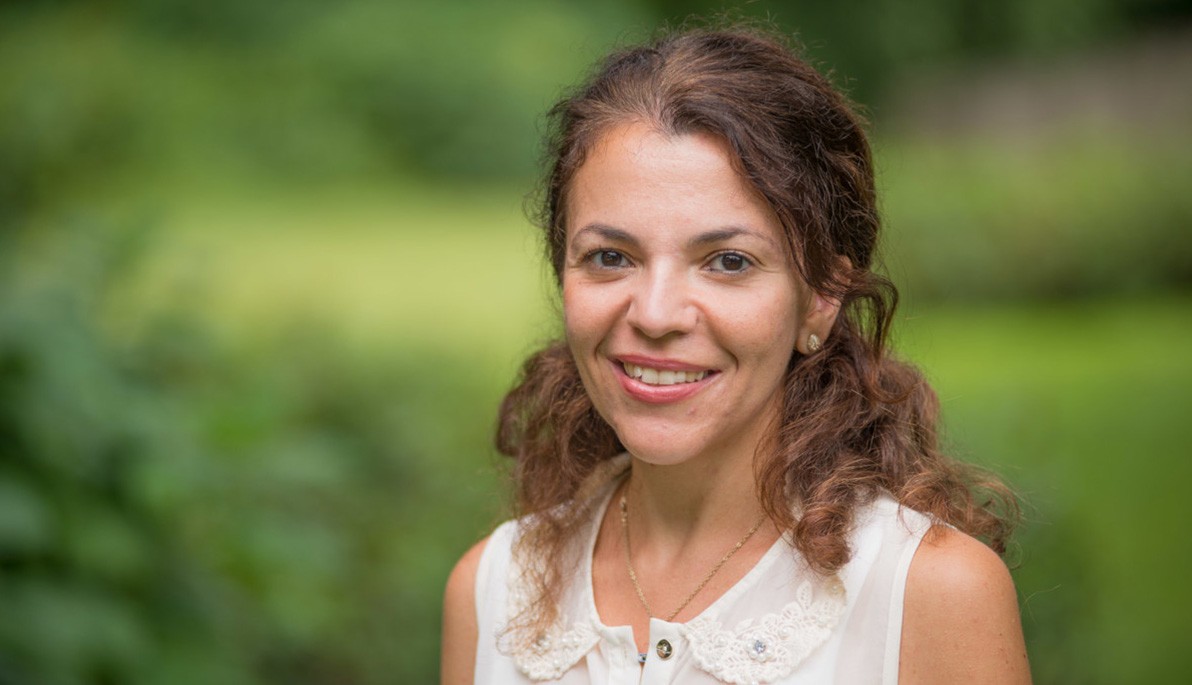
Study: Spice May Improve Ovarian Cancer Treatment
March 28, 2023
NYITCOM Associate Professor of Clinical Sciences Maria Pino, Ph.D., has co-authored a new research paper that makes a strong case for why a golden spice commonly found in curry could enhance ovarian cancer treatments.
Ovarian cancer is the second most common gynecological cancer among women in the United States, with an estimated 20,000 women in America expected to receive a new diagnosis of ovarian cancer this year.
Unfortunately, the five-year survival rate for ovarian cancer remains below 50 percent. To further complicate matters, diagnosis can be very challenging; symptoms are often vague, resembling other common medical conditions, and no screening test currently exists.
Treatment for ovarian cancer typically consists of surgery and chemotherapy, but these powerful chemotherapy drugs can have harsh side effects, like hair loss and vomiting. In addition, later stage ovarian cancer tends to develop chemotherapy resistance, rendering treatments less effective and, in turn, worsening patient prognosis.
Now, in a new medical review paper published in Pharmacy Times, Pino and two Doctor of Pharmacy candidates from St. John’s University discuss why the cancer research community should seriously explore the benefits of the spice curcumin in the treatment of ovarian cancer.
Curcumin is a golden, natural compound derived from turmeric, a plant in the ginger family that is, perhaps, best-known as a curry spice ingredient. The compound has been used in Ayurveda and Chinese medicine for thousands of years and, more recently, has gained attention in western medicine as a potential tumor suppressant.
The National Institutes of Health National Cancer Institute notes that early-phase clinical trials using curcumin-containing products yielded promising outcomes when used in combination with treatments for colon, oral, and liver cancers.
“The interest in curcumin came from the students I mentored. We went through various publications on this spice for managing inflammatory conditions and its action as an antioxidant,” says Pino, an expert in pharmacology and toxicology.
Pino and her co-authors note that curcumin offers diverse therapeutic benefits, including anti-inflammatory and analgesic (pain-killing) effects, with few negative side effects. The researchers also document existing studies of ovarian cancer cells and cancer in animals, which have both found that curcumin helped suppress tumor cell spread and growth.
They write, “Curcumin, when combined with chemotherapy, is more likely to enhance the synergistic effect of cancer cells to drug therapy. The addition of this phytochemical to current ovarian cancer chemotherapeutics may enhance drug cytotoxicity while reversing multiple drug resistance.”
In other words, when curcumin is used alongside chemotherapy, ovarian cancer patients may respond better to treatments.
“Treating ovarian cancer is challenging. The standard chemotherapeutic drugs have many adverse effects, and I know that from my experience in patient care,” says Pino. “What I found interesting is that there are some studies showing that adding curcumin reduced these adverse drug effects.”
Pino adds that these positive findings merit additional scientific research.
“More studies will be needed to see if curcumin can consistently enhance the standard of ovarian cancer treatment and, if so, at what dose.”
More Features

An Alumnus’ Commitment to the Environment
As an energy management graduate from New York Tech’s Vancouver campus, Jasdeep Gulati (M.S. ’22) is highly invested in educating people about environmental and climate sustainability.

Vancouver Faculty Win University-Sponsored Research Awards in New Program
The new Global Impact Research Grant (GIRG) program has been developed to keep Vancouver-based faculty connected to faculty and research projects being conducted on the university’s New York campuses.

Studying Climate Change One Degree at a Time
Junhua Qu (M.S. ’24) began her collegiate journey in Beijing. But, her interest in climate change took her to New York Tech’s Vancouver campus to study energy management.
